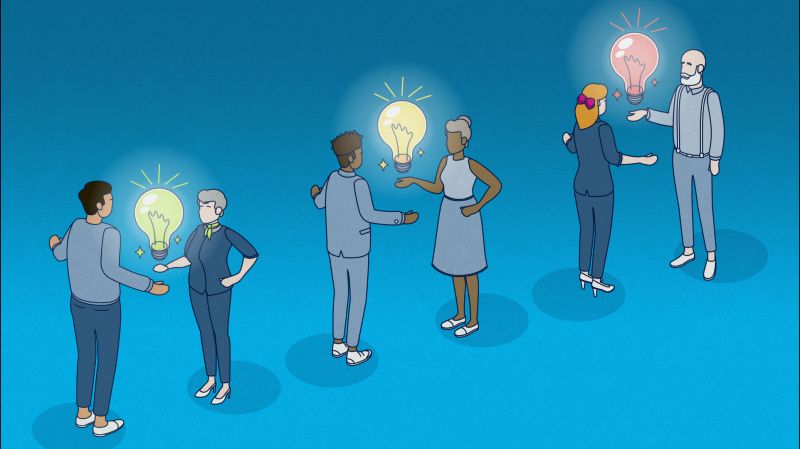Taking the Measure of the Corporate Innovator
Intrapreneurs have feet in two worlds and it’s up to leaders to help them stay balanced

By Shari Hughson
CEOs seem to lack the confidence in their organizations’ ability to innovate. In a recent survey, 81 percent of CEOs said innovation and creativity were important to the share price of their firms. At the same time, most said they were not confident they had the people or systems in place to actually pull it off. Why do CEOs believe they don’t have the internal entrepreneurs and systems to do corporate innovation when there are people working in these roles already? What do the CEOs feel they need that they aren’t getting?
It’s a question I’ve long tried to answer. I interview hundreds of people applying to the Queen’s Master of Management Innovation and Entrepreneurship program. About half enter the program intending to pursue a career as corporate innovators. I take note of the students who are really successful and learn from the corporate innovators who come to Smith to lead practical sessions and coach our students.
My views really came into focus when I gave a presentation to the Intrapreneurship Conference (now called Innov8rs) in Toronto, in November 2017. I led a brainstorming session on what’s needed in corporate innovation from a talent perspective: both the personality traits and the skillset of individuals who excel in this role.
Intrapreneurs must operate in a corporate culture not of their creation, and often have to fight for resources and attention in a system that tries to maintain status quo
We often think that independent entrepreneurs and corporate intrapreneurs are cut from the same cloth. Indeed, they both need to have great vision, be able to sell concepts, and adapt quickly to changing situations. But there are differences in the risk-reward dynamic and level of autonomy. Intrapreneurs must operate in a corporate culture not of their creation, and often have to fight for resources and attention in a system that tries to maintain status quo.
During the brainstorming session, participants — intrapreneurial leaders themselves — came up with a mix of right- and left-brain traits that reflects the unique situation of corporate innovators. They realized that intrapreneurs in some ways must have a whole-brain personality and easily switch from one side of the brain to the other.
We know that corporate innovators must be creative and able to thrive in chaos. They’re collaborative, resilient, and oriented to the future. But they are realists and driven by process because they have to deliver. They must be competitive to find that next great idea but also work well within their teams. They are independent thinkers but also empathetic people who can relate to what it feels like to be in someone else’s shoes. They don't take ‘no’ very well and will always try to find a way around the rules of the established system.
As for required skills, my brainstorming group said intrapreneurs have to be a jack of all trades. They need to know a little bit of everything from accounting to finance, and a lot about marketing and selling. They must have unique skills in design thinking and prototyping, ideation analysis systems, design, production processes, logistics, project management, and the vetting of innovation and ideas. They have to know exactly what every department needs to hear from them to get approvals and be able to sell all the way to the C-suite.
These intrapreneurs must be given room to fail and the support to operate within an environment of uncertainty
It's no wonder that companies struggle to find the right people. These unidentified intrapreneurs are often the ones struggling at their day jobs. They get bored easily. They are regularly doing side projects and outside work. They're the ones who challenge assumptions at a meeting. They may be outliers, described by co-workers as odd or different. But their quirkiness and diversity make them incredibly great at thinking differently and bringing a fresh perspective.
If company leaders can identify innovators and give them projects that they can develop and own, they can drive innovation within their firms. These intrapreneurs must be given room to fail and the support to operate within an environment of uncertainty. Even if an idea doesn’t pan out, the team will have learned a tremendous amount about the marketplace or some internal process that needs to be changed. Celebrating what has been learned rather than commiserating on a failure will herald a shift in corporate culture.
The reality is that the need for intrapreneurs is growing exponentially. For many organizations, it is almost an existential challenge to build the internal team that can inspire and execute on innovative initiatives. They’ll need all the help that can get.
Shari Hughson is director of the Master of Management Innovation and Entrepreneurship program at Smith School of Business. With a degree in nursing and an MBA, she has been an entrepreneur, intrapreneur, advocate, social innovator, and start-up coach and mentor.





